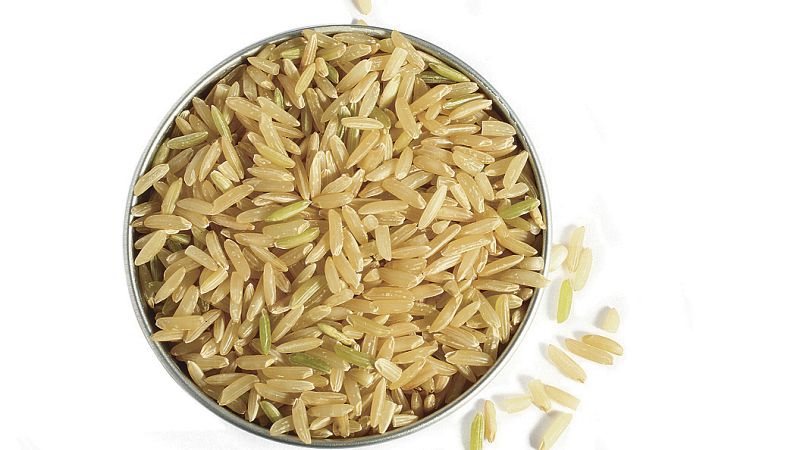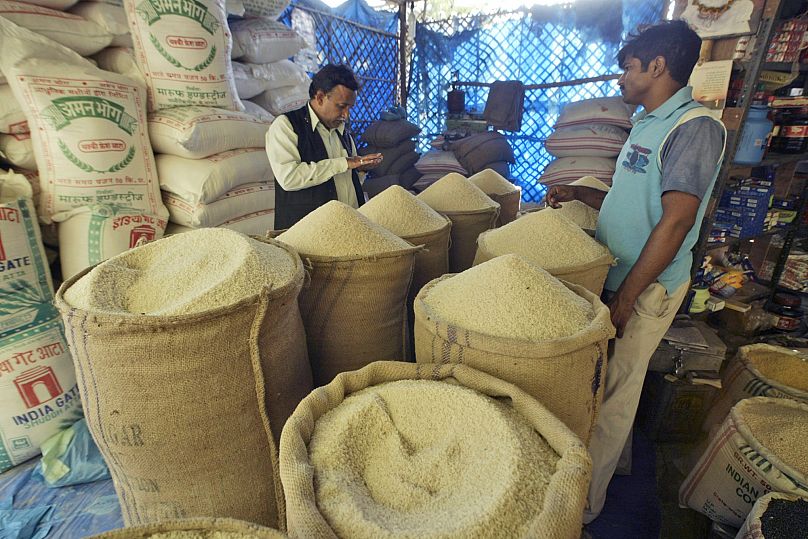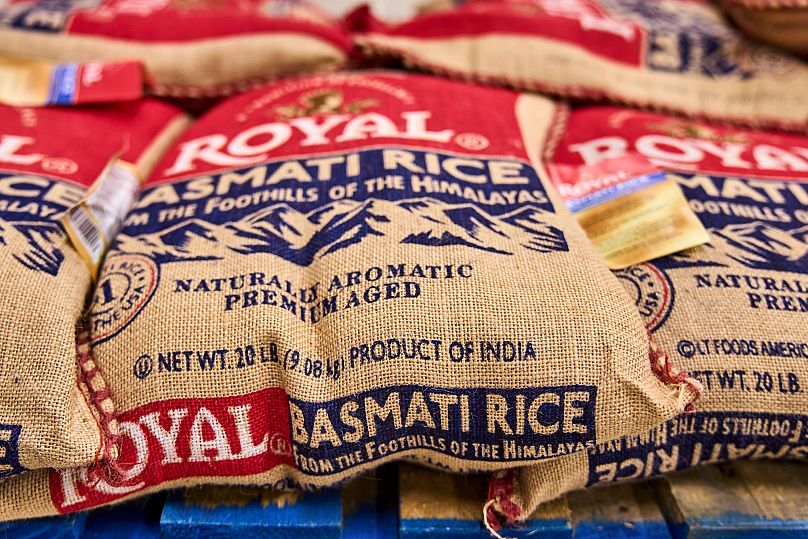Is basmati rice Indian or Pakistani? Do not ask the European Commission

In the midst of negotiating a long-awaited trade deal with India, European Commissioner for Trade Maroš Šefčovič is facing a real headache: how to avoid a clash with Pakistan while resisting pressure from India to recognise the Indian origin of the long-grained, fragrant basmati rice.
“This is of course one of the issues which is on the list,” Šefčovič admitted on 12 September as he was back from a round of negotiation in New Delhi.
New discussions are taking place in Brussels this week, as both India and the European Union have set themselves the goal of reaching a trade deal before the end of the year, with the new tariff policy of the Trump administration putting both partners under pressure to build new trade ties.
Of course, basmati rice will be among the issues discussed between Šefčovič and his Indian counterparts, as India wants its geographical indication (GI) protected in Europe.
But such recognition would not come easily, since its rival neighbour Pakistan — which has been in conflict with India over the disputed Kashmir region since the partition of the two countries in 1947 — also demands the EU to recognise basmati as of Pakistani origin.
The protection of GIs carries significant economic stakes. Trade talks between the EU and its partners usually include a separate section dedicated to it. Owing to its rich artisanal and culinary heritage, the EU — largely thanks to France, Italy and Spain — holds the largest number of GIs in the world.
In trade negotiations, Brussels seeks to have as many of its products as possible protected by the other party to prevent counterfeiting in that country, with France's champagne and Italy's famed Parmigiano Reggiano cheese being the most commonly forged products.
And the other party to the negotiation can accept, provided the agreement also defends its own interests and GIs.
The failure of a joint recognition
If it were up to the EU alone, it would have recognised basmati rice as Indian and Pakistani long ago — but it's not that simple.
At the beginning, things hadn't started off so badly. In fact, India and Pakistan had jointly led a fight against a US company RiceTec, which had obtained a patent on basmati rice in the late 1990s. In 2001, the US Patent and Trademark Office revoked that patent.
A few years later, to protect the origin of basmati in the EU, Islamabad and New Delhi collaborated between 2004 and 2008 on a joint application to the European Commission for the recognition of their shared heritage over the rice which comes from the Punjab region, situated on the border between India and Pakistan.
But the 2008 Mumbai attacks, in which 160 people were killed and which India attributed to Pakistani intelligence services, shattered the joint efforts of the two countries and reshuffled the deck.
After years of deadlock and tension, India unilaterally submitted a request for GI registration to the European Commission in 2018.
The application states that the rice, characterised by “an exquisite aroma, sweet taste, soft texture, delicate curvature,” is grown in the Indo-Gangetic plains, a geographic zone divided between India, Pakistan, Cambodia and Nepal, which also includes the Punjab region.
In the months that followed, Pakistan opposed India's application, perceiving it as an attempt to secure exclusive use of the term "basmati".
And after unsuccessful exchanges between the lawyers of both parties, Pakistan submitted its own request for GI status in 2023, listing not only the Indo-Gangetic plains but also four districts of the much-disputed Kashmir — Mirpur, Bhimber, Poonch, and Bagh — as places where basmati rice is grown.
Both sides deny requests for exclusive recognition
After several years of attempting to mediate between the two rival brothers, the EU found itself caught in the trap of territorial recognition of Kashmir — the core of the territorial dispute between India and Pakistan.
“The Commission is trying to defuse a geopolitical conflict,” Matteo Mariano, expert in trademarks at Novagraaf law firm said.
“It could have said 'first come, first served,' but it chose not to, considering that the territorial issues between India and Pakistan are not its concern.”
Sources from both Pakistan and India that were contacted by Euronews denied that their country was asking for exclusive recognition of the basmati origin. Yet, the path to a common solution does not seem to be emerging.
In the midst of negotiations for a much broader trade agreement — ranging from automotive markets to dairy products to public procurement — the EU finds itself walking a tightrope.
“If the Commission is strong-handed, it can force a joint registration by Pakistan and India”, Mariano said. “This depends on the importance of the trade agreement for India and whether the EU has time to block negotiations on GIs," he explained.
According to the lawyer, if India wants to have doors opened for itself, the EU can leverage that to benefit its own companies.
But for that, the Commission will need to be a shrewd strategist, as Delhi is represented by “tough negotiators,” Šefčovič himself conceded in September.
Today



